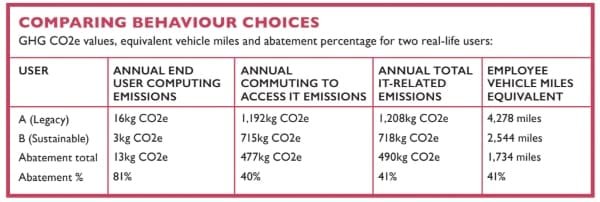This article first appeared in our I.T. special issue of of My Green Pod Magazine, distributed with The Guardian on 16 September 2020. Click here to subscribe to our digital edition and get each issue delivered straight to your inbox
Humans don’t own the environment: instead, our rapacious tribe is integral to it.
Having grown in such numbers and strived for such innovation, we must now play our role in creating a sustainable present if we are to safeguard the future.
The United Nations states that ‘Sustainability is the principle of ensuring that our actions today do not limit the range of economic, social, and environmental options open to future generations’.
Arguably, sustainability is not about stopping life’s everyday activities. It is about conducting those activities in a way that reduces harm in both the short and long term. But on an individual level, how do we measure our environmental success?
Have you ever leapt out of bed and said, ‘Today I must measure my personal anthropogenic interference on the influence of the temperature of the ground due to the radiative forcing of the gases carbon dioxide, methane, nitrous oxide, hydro fluorocarbons, sulphur hexafluoride and perfluorocarbons with units of CO2e’? Unless you are a climatologist, greenhouse gas (GHG) accountant or, dare I say it, me, then probably not. Instead, as you walk to work rather than commuting, you will simply sense that you’re doing something that feels right.
Measuring emissions
The problem is that the measurement for GHG emissions, known as carbon dioxide equivalent units – or CO2e – is, to the majority of us, intangible. It lacks analogy, which complicates the measurement of personal success.
Who knows what one tonne of CO2e looks like? It could be the size of a mouse, an elephant – or Cumbria.
When presenting results from I.T.-related GHG emission audits, I regularly announce that a company has generated several thousand tonnes of CO2e emissions and pause for effect.
The heads nod slowly in concerned agreement, while the eyes vacantly confirm that nobody in the room has any idea what I’m talking about. I then go for the analogy, ‘that’s the emissions equivalent of over 7 million miles driven in a year.’ The room erupts with smiles of instant understanding, despite the fact that I’ve just delivered bad news.
That sustainability feeling
This lack of appreciation for carbon accounting extends all the way through most organisations and, in my experience, becomes even more remote for people who are not compensated – financially or professionally – for improvements in a company’s environmental performance. That’s why I created EVE.
EVE is an acronym for Employee Vehicle Equivalent; it’s simply a per capita representation of I.T.-related GHG emissions, analogised as the equivalent vehicle miles.
Simply put, it measures how much pollution a person creates when using I.T. and commuting to access I.T. for work. But instead of CO2e units, it shows the pollution in equivalent car exhaust fumes.
 Play Video about This Rock Might Just Save The World
Play Video about This Rock Might Just Save The World Play Video about Play 2 hours of rock
Play Video about Play 2 hours of rock Play Video about Play 2 hours of brook
Play Video about Play 2 hours of brook Play Video about Play 2 hours of sheep
Play Video about Play 2 hours of sheep












































